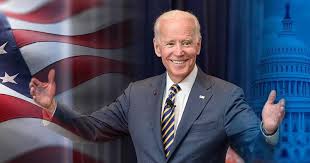President Biden's and Democrat's Legislative Accomplishments

This article was original published in 2022; Updated and Republished on 01/01/2024
Since President Biden’s inauguration on January 20, 2021, the President and the Democrats worked hard to move forward with legislation to help the economy, get people back to work, improve our country and its international relations, and promote justice and equality.
As President Biden stated in his August 31, 2022, Philadelphia speech during his presidency so far:
“. . . we passed the biggest infrastructure investment since President Eisenhower . . . we passed the most significant gun safety law since President Clinton . . . we passed the most significant health care reform since President Obama signed the ACA . . . and . . . we passed the most important climate initiative ever, ever, ever.”
Here is a summary of significant legislation by the Democratic Congress and President Biden, as well as high profile Executive Orders of President Biden through 2022. This legislation has proven essential in listing our country out of the worst of the pandemic and has significantly improved our country's economic outlook in 2024.
3/2021 - American Rescue Plan: a $1.9 trillion investment in our people, businesses, and local governments to address the impact of COVID-19. Passed with ONLY Democratic votes. No Republicans voted for this bill.
11/2021 - Infrastructure Investment and Jobs Act - a $1.2 trillion investment in hard infrastructure, including roads and bridges, plus broadband, electric grid, clean water. (A major reason for improving jobs reports in 2022, 2023, and 2024.) (By 1/1/2024, this legislation has brought around $575 million to Colorado projects, with $1.3 billion being added to bring broadband internet access to many areas of Colorado.)
3/2022 - Emmett Till Anti-Lynching Act - designating lynching as a hate crime -- 120 years after the first anti-lynching bill had been introduced and failing on almost 200 prior occasions.
3/2022 - Reauthorization of the Violence Against Women Act - Reauthorization of legislation passed in 2012. Passed on bipartisan vote.
4/2022 - Confirmation of Ketanji Brown Jackson for the Supreme Court - The first black woman confirmed by a vote of 53 to 47 (All Dems confirmed, 3 Republicans confirmed: Collins, Murkowski, and Romney.) Assumed her position on the Court on June 30, 2022.
6/2/22 - Bipartisan Safer Communities Act - The first move on gun safety legislation, with Democrats pursuing significant negotiations with the other side of the aisle, passed after the Uvalde school shooting. (This has proven essential for making progress in 2023 and 2024 in keeping guns out of the hands of persons not eligible to purchase guns.)
7/2022 - CHIPS and Science Act - Research bill including $56 billion investment in American semiconductor production in the U.S., to address national security issues experienced with the global lockdown. Passed in a bipartisan fashion (after $100 million of lobbying by American manufacturing industries attracted votes from across the aisle).
8/2/2022 - Honoring our PACT Act of 2022 - providing healthcare and other support services for Veterans exposed to toxic substances during military service. Originally supported by both parties, then failed due to Senate Republicans changing their votes to NO. Public pressure restored Republican votes for passage.
8/3/2022 - NATO Expansion - Senate approval (95 - 1) to increase NATO membership to include Sweden and Finland, strengthening defenses of the treaty group against Russian aggression. (All NATO countries must vote.)
8/16/2022 - Inflation Reduction Act of 2022 -- First major legislation addressing Climate Change!
- $437 Billion funding for climate change and drought response, and health care (ACA and Medicare major improvements);
- $737 Billion of revenues raised from tax fairness changes, including minimum tax on large corporations, stock buyback fees, limitations on tax losses, and enhanced IRS tax law enforcement. (No tax changes to impact persons earning less than $400,000.)
- (2024 Update - This legislation is already bringing $3 billion to Colorado for manufacturing and clean energy investments, plus savings of $140.4 million in energy rebates to Colorado families. Plus diabetic seniors are already eligible for insulin cost reductions to $35!)
President Biden also has taken actions through Executive Orders when legislation passing through Congress on a timely basis was not possible. (This is a selected and not a complete list.)
2021:
- - Advancing Racial Equity and Support for Underserved Communities.
- - Preventing Discrimination on the Basis of Gender Identity or Sexual Orientation
- - Establishing the Climate Change Support Office and Tackling the Climate Crisis at Home and Abroad
- - Strengthening Medicaid and the Affordable Care Act
- - Promoting Access to Voting
2022:
- Strengthening Americans’ Access to Affordable, Quality Health Coverage
- Strengthening the Nation’s Forests, Communities, and Local Economies
- Advancing Equality for LGBTQ Individuals
- Protecting Access to Reproductive Healthcare Services (supporting women’s rights to choose and to protect and defend reproductive rights)
- Securing Access to Reproductive and Other Healthcare Services (a) Clarifies the obligation of hospitals and providers under the Emergency Medical Treatment and Labor Act to provide emergency medical care, including stabilizing care, ensuring equal access to comprehensive reproductive and other services, including abortion and miscarriage treatment. (b) Obligations of pharmacies to provide prescription medications, including those drugs that provide contraception or that may terminate pregnancy. (c) Covers the rights to travel to other locations and states that provide such services.
- Executive Order on Student Loans - (a) Extending the repayment pause to December 31, 2022 (Pandemic-related deferral). (b) Forgiving student loan debt for individuals with incomes up to $125,000 -- amounts up to $20,000 for Pell Grant recipients and up to $10,000 for non-Pell recipients. (94% of Pell Grant recipients are from families with incomes of $60,000 or less.) [for Details see Separate Spotlight Article on Student Loan Forgiveness]